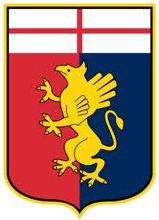
Battle of Rhodes |
year: 12491248-1249 |
| A Byzantine victory against the Genoese who had invaded Rhodes | ★ ★ ★ ★ ★ |
|
enemy: Genoese
|
location: Island of Rhodes
|
accuracy:
●●●●●
|
|
battle type: City Capture |
war: Nicaean-Latin Wars |
modern country:
Greece |
| ▼ The Byzantines(emperor: John III Doukas Vatatzes) | ▼ The Enemies | |
| Commander: | John Kantakouzenos & (later) Theodore Kontostephanos | Unknown Genoese & William II of Villehardouin |
| Forces: | ||
| Losses: |
| Background story: |
| Rhodes and its nearby islands had been detached from the control of the central Byzantine government already, since before the fall of Constantinople to the Fourth Crusade in 1204. Under the rule of the self-proclaimed Caesar Leo Gabalas, the island became the center of a practically independent domain, although at times Gabalas seems to have acknowledged the suzerainty of the major Byzantine Greek successor state, the Empire of Nicaea. In the early 1240s, Leo Gavalas died and was succeded by his brother John Gabalas. In 1248, John Gabalas was absent from the island, participating in a Nicaean campaign against the Latin Empire. The Genoese exploited his absence and in a surprise night attack seized the city of Rhodes, the island's capital, and soon expanded their control over the whole island. |
The Battle: |
 Rhodes was well provisioned and the siege raged over the winter of 1248–1249 into spring. In May 1249, William II of Villehardouin, the Prince of Achaea, arrived on the island on his way to join the Eighth Crusade in the Holy Land. This caused the Nicaeans to raise the siege and fall back to Phileremos. William quickly concluded an agreement with the Genoese, and left behind a hundred of his knights before departing for the Holy Land. The Genoese now reversed the situation and besieged the Greeks at Phileremos both by land and sea, while the Achaeans ravaged the countryside. Emperor John II Vatatzes ordered the dispatch of an additional force of 300 knights under Theodore Kontostephanos. The arrival of this unit once again tipped the balance: the Greek troops caught the Achaeans off guard while they were plundering, and killed them all. The Genoese fled back to the city of Rhodes, but as they were unable to withstand another siege, they agreed to surrender it in exchange for their safe departure. This took place either in late 1249 or early 1250. |
Aftermath: |
| Following the eviction of the Genoese, Rhodes became fully incorporated into the Empire of Nicaea. In around 1256, the island's government was entrusted to John Palaiologos, the younger brother of future emperor Michael VIII. Rhodes remained Byzantine for a few years, until the coming of the knights of the Order of Saint John. |
|
|
